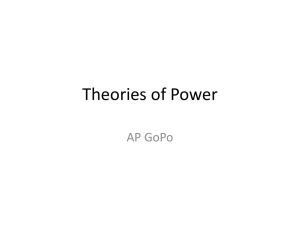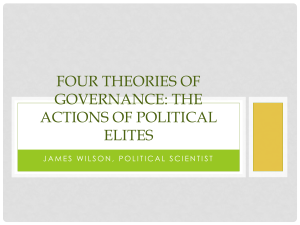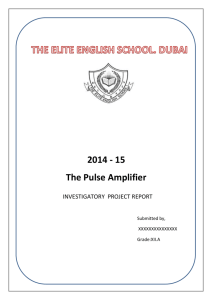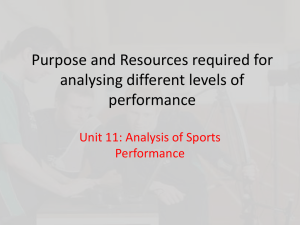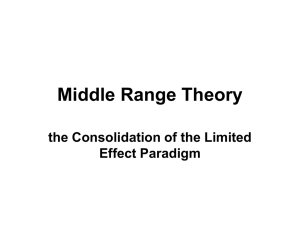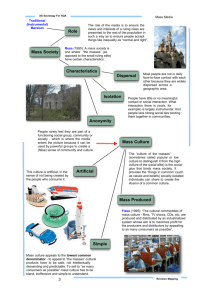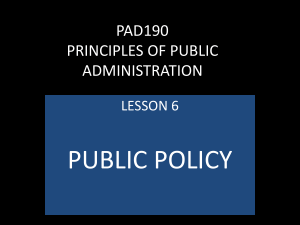Political economy of the Soviet elite and its post-communist transformation Valery Lazarev,
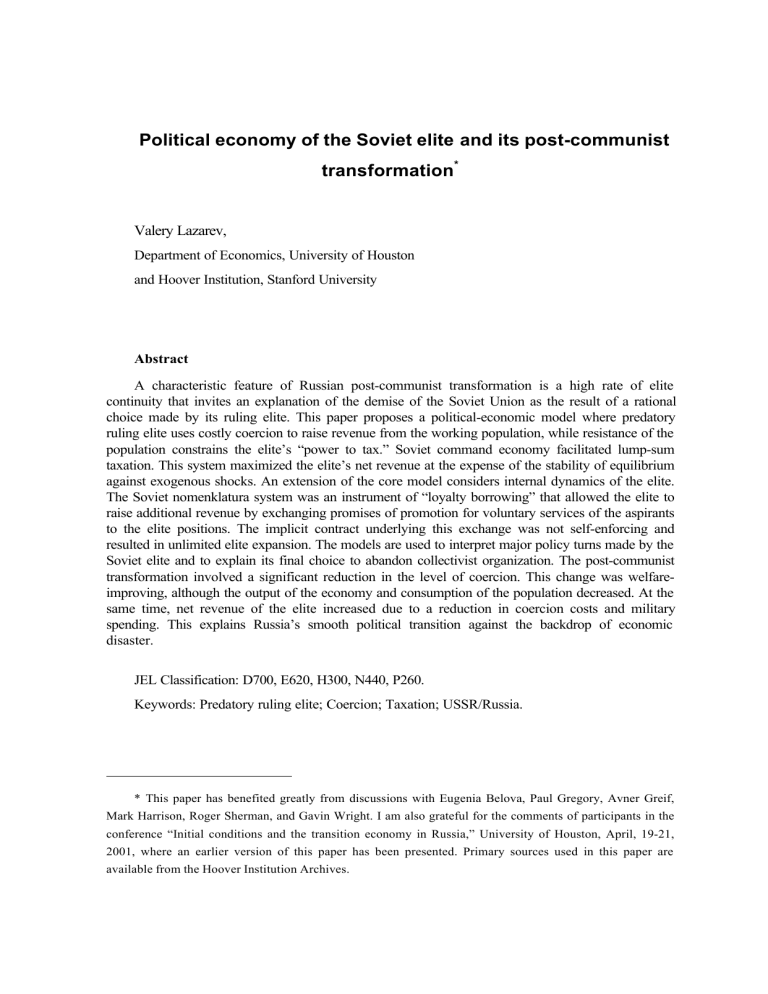
Political economy of the Soviet elite and its post-communist transformation
*
Valery Lazarev,
Department of Economics, University of Houston and Hoover Institution, Stanford University
Abstract
A characteristic feature of Russian post-communist transformation is a high rate of elite continuity that invites an explanation of the demise of the Soviet Union as the result of a rational choice made by its ruling elite. This paper proposes a political-economic model where predatory ruling elite uses costly coercion to raise revenue from the working population, while resistance of the population constrains the elite’s “power to tax.” Soviet command economy facilitated lump-sum taxation. This system maximized the elite’s net revenue at the expense of the stability of equilibrium against exogenous shocks. An extension of the core model considers internal dynamics of the elite.
The Soviet nomenklatura system was an instrument of “loyalty borrowing” that allowed the elite to raise additional revenue by exchanging promises of promotion for voluntary services of the aspirants to the elite positions. The implicit contract underlying this exchange was not self-enforcing and resulted in unlimited elite expansion. The models are used to interpret major policy turns made by the
Soviet elite and to explain its final choice to abandon collectivist organization. The post-communist transformation involved a significant reduction in the level of coercion. This change was welfareimproving, although the output of the economy and consumption of the population decreased. At the same time, net revenue of the elite increased due to a reduction in coercion costs and military spending. This explains Russia’s smooth political transition against the backdrop of economic disaster.
JEL Classification: D700, E620, H300, N440, P260.
Keywords: Predatory ruling elite; Coercion; Taxation; USSR/Russia.
* This paper has benefited greatly from discussions with Eugenia Belova, Paul Gregory, Avner Greif,
Mark Harrison, Roger Sherman, and Gavin Wright. I am also grateful for the comments of participants in the conference “Initial conditions and the transition economy in Russia,” University of Houston, April, 19-21,
2001, where an earlier version of this paper has been presented. Primary sources used in this paper are available from the Hoover Institution Archives.
